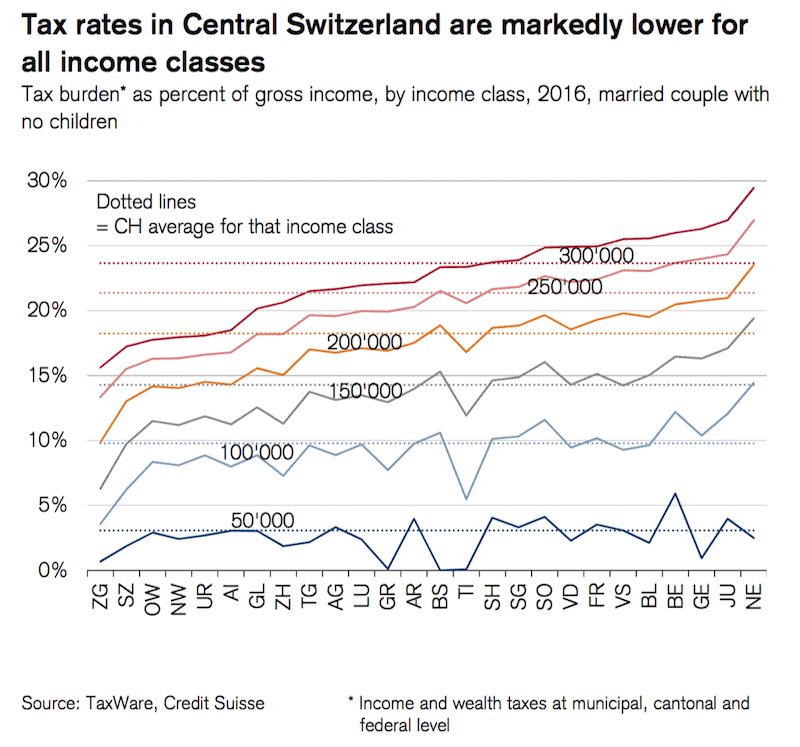This week the bank Credit Suisse published its cantonal cost of living report. Its ranking considers a typical household’s biggest expenses: tax, housing, commuting, basic health insurance and childcare. It takes income and deducts all of these costs to arrive at a measure of disposable income.

Life is cheper in Uri © Stefano Ember | Dreamstime.com
In a simplified world it might be expected that low tax rates would push up the cost of most other things as the wealthy arrived and bid up prices. Conversely, high taxes would reduce a canton’s attractiveness, reduce demand for housing and other services and deliver a lower cost of living. According to Credit Suisse’s report the world is not that simple.

High-tax Geneva and Basel also come with high costs, in particular housing. In Geneva, high tax and expensive housing combines with Switzerland’s most expensive health insurance to place the canton at the bottom. Basel-City is second from the bottom, well behind Vaud, Basel-Landschaft, Neuchâtel and Zurich, which all leave their residents with below average disposable income. Generally, urban cantons leave residents with less money to spend on non-essentials.

At the other end of the spectrum were the two largely rural cantons of Uri and Glarus. These two offer both low taxes, low health insurance and relatively low housing costs. In Uri, basic health insurance costs around 30% less than it does in Geneva.
Finding the lowest cost canton depends on an your situation. The canton of Jura has the lowest cost housing and childcare, but comes with the second highest tax burden. Zug has both the lowest tax rates and the lowest health insurance premiums, but housing there is expensive. However, housing can cost as much in Geneva and Zurich as it does in Zug.
In 2014, housing gobbled up 10.7% of an average Swiss household’s income. In some parts of the canton of Jura, the average monthly rent for a 4-room apartment was less than CHF 1,200. In some neighborhoods of Zurich and Geneva, a similar place would cost more than CHF 3,000.

On average taxes consume 12% of income in Switzerland. The money that could be saved by moving varies depending on income. For example, a couple in Zug with an income of CHF 100’000 would pay nearly CHF 11,000 more in taxes if they moved to Neuchâtel, the canton with the highest taxes. The same move would cost a couple on CHF 300,000, CHF 41,000 in extra tax.

In Switzerland 7 out of 10 workers commute from where they live. The average distance in 14.5 km each way, taking around 30 minutes. For those preferring public transport, low commuting costs are one of the few bright spots for urban dwellers, although rural cantons tend to offer greater tax deductibility of commuting expenses.
Moving house can have a huge impact on health insurance premiums. Moving a few kilometers from Basel-City to Kaiseraugst, in Aargau, can cut premiums by CHF 1,700.
The cost of childcare varies widely. The annual cost of external childcare for a couple with two children in daycare for two days a week with income of CHF 80,000 will on average spend over CHF 20,000 in Uri. In Jura they will spend less than CHF 3,500.
More on this:
Credit Suisse report – opens PDF (in English)
For more stories like this on Switzerland follow us on Facebook and Twitter.


Srenim says
Are they all Socialist Cantons ?
Interesting that low Tax generates higher Income and better living.